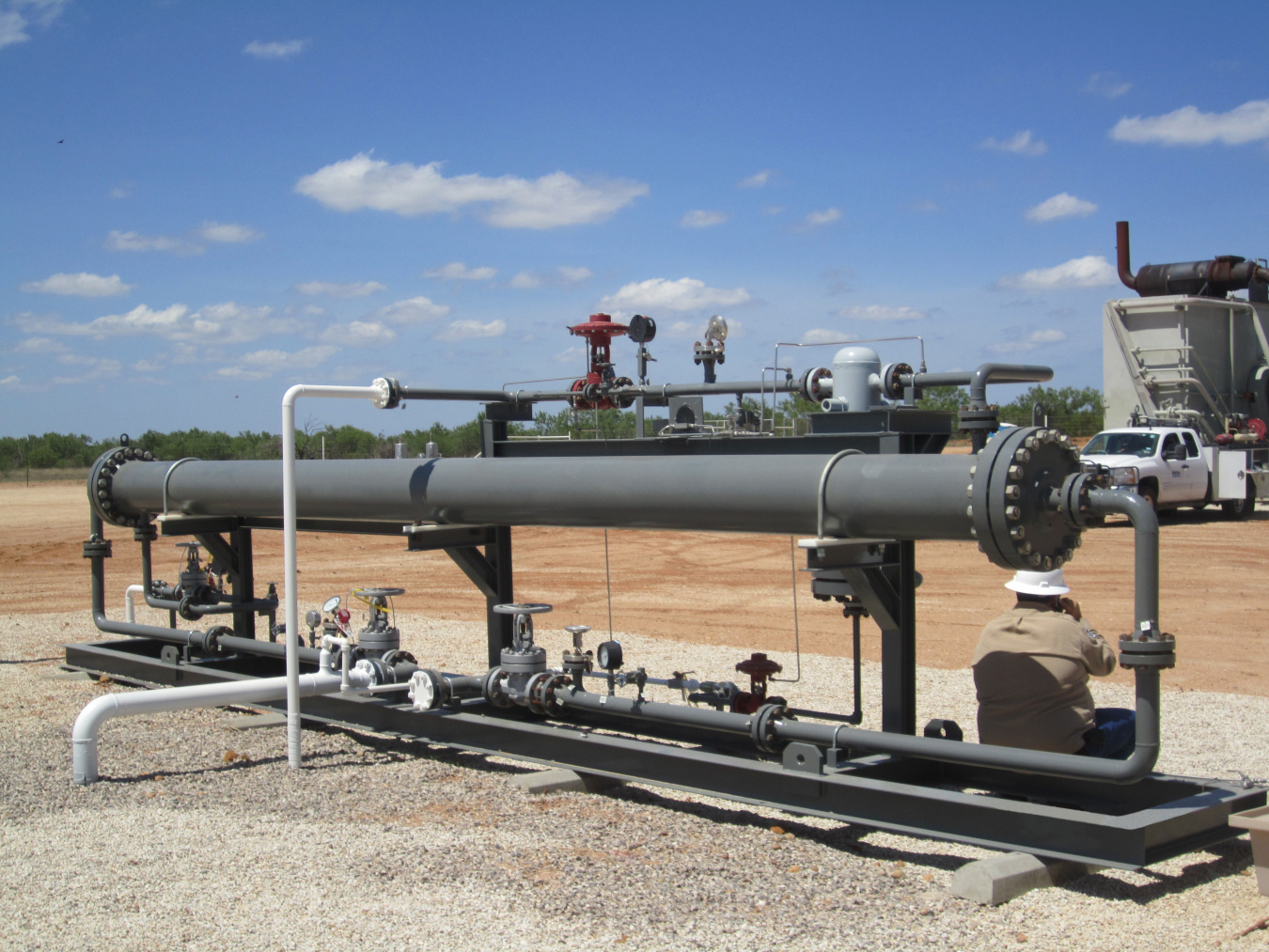
Membrane fuel gas conditioning unit developed by Membrane Technology and Research, Inc. used to treat natural gas in the Eagle Ford Shale area, Texas.
The Office of Fossil Energy participates in DOE's Small Business Innovation Research (SBIR) and Small Business Technology Transfer (STTR) programs. SBIR and STTR are U.S. government programs in which federal agencies with large research and development (R&D) budgets set aside funding for competitions among small businesses only. Small businesses that win awards in these programs keep the rights to any technology developed and are encouraged to commercialize the technology.
The SBIR/STTR Program seeks to:
- Stimulate high-tech entrepreneurial innovation;
- Utilize small business to meet the nation's research and development needs;
- Foster and encourage participation by minorities and disadvantaged persons in technological innovation; and
- Increase private sector commercialization
The SBIR and STTR programs have three distinct phases. Phase I explores the feasibility of innovative concepts with awards up to $250,000 for one year. Only Phase I award winners may compete for Phase II, the principal R&D effort, with awards up to $1,600,000 over a two-year period. There is also a Phase III, in which non-Federal capital is used by the small business to pursue commercial applications of the R&D. Also under Phase III, Federal agencies may award non-SBIR/STTR-funded, follow-on grants or contracts for products or processes that meet the mission needs of those agencies, or for further R&D.
Currently, the Office of Fossil Energy is managing over 50 SBIR/STTR projects with an annual budget of over $20 million. For Release 1, topics are issued annually in July under Basic Energy Sciences (FOA opens in August). For Release 2, topics are issued in October under Fossil Energy (FOA opens in November). Projects are being conducted in the following areas:
- Carbon Capture and Storage
- CO2 Utilization
- Coal and Biomass Utilization
- Advanced Separation (CO2, H2, O2)
- Oil & Gas
- Unconventional Resources (Oil Shale, Methane Hydrates, etc.)
- Gasification (IGCC, Coal and Biomass)
- Coal and Coal Biomass to Fuels
- Solid Oxide Fuel Cells
- Turbines
- Sensors and Controls for Coal-Fired Power Plants
- High-Performance Materials for Power Plants
- Supercritical CO2 Power Cycles
- Advanced Combustion
- Rare Earth Elements

